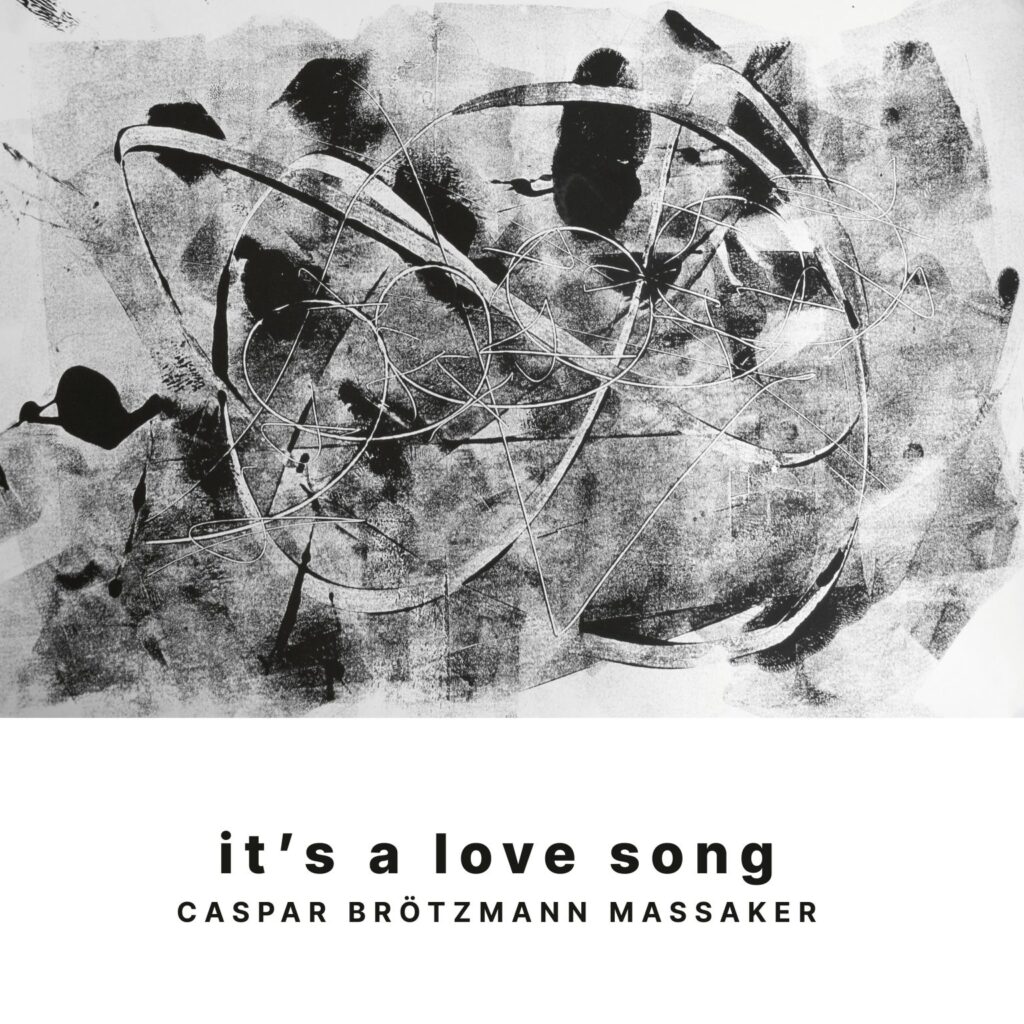For an album arriving twenty-five years after Mute Massaker, Caspar Brötzmann’s last outing with his legendary free noise trio, It’s a Love Song sounds and feels unusually pressing, like the heavy ticks of a clock nearing midnight. “After just a few moments, it became clear that the live recordings I was hearing had a message, a power to reflect on current events,” says the German guitarist, explaining his decision to postpone an already underway studio album to release this collection of two long, punishing live recordings from earlier this year of a song called ‘All This Violence’.
Past the abstract pulses, spectral detonations, and fucking harrowing atmosphere of the brief appetiser ‘Bar Open’, we find Brötzmann and his new Massaker incarnation with Eduardo Delgado-Lopez (electric bass) and Saskia von Klitzing (drums) playing a thirteen-minute-long version of ‘All This Violence’ in Vienna on January 29th. When Brötzmann opens the piece, alone with his guitar, it takes a minute or two to fully acclimatise to the sheer heaviness – of sound, of emotion – that greets us.
His unmistakable, no-wave-via-noise-and-improv tone is bent and tapped into a series of industrial waves. The music spasms and recoils, stretches and shivers, making the guitar’s vibrato growl – and I mean growl – with fury, like a caged animal trying to break free, until finally reaching some ephemeral balance, with cleaner licks clanking and stumbling over each other. Then, Delgado-Lopez and von Klitzing rush in, kicking up a maelstrom reminiscent of the wild cuts found on early Massaker albums like The Tribe and No Axis, but with a lumbering, weary and confident rather than pissed-off strut. Here, Brötzmann shapes lines into acerbic, ululating imperatives. “We are peaceful people / And we have enough / This is our protest / From all this violence,” he roars, a very palpable threat clinging off of each word.
In place of the suffocating darkness that looms over the Vienna recording, the four minutes longer performance from Dresden on January 25th explores a brighter and lighter textural motif. The imposing mass of riffs and feedback is still there, but Brötzmann lets it breathe and expand, sustaining drone grooves and delving into sparse, atmospheric sections that would never fit the mood of the previous take, even if it had the needed space and time.
When the cut once more explodes into a power trio improv workout, Brötzmann’s words take on a completely different tone: pleading, desperate, and heartbreakingly beautiful rather than furious. “Where is my hope,” he sings, with each repetition embedded in gnarly, all-consuming guitar throbs that inch him closer to Scott Walker and his delivery on Soused with Sunn O))), a band significantly influenced by Massaker.
Sequenced as on the album, in reverse order of recording, the two takes venture from a place of total darkness towards some semblance of hope, which feels like a conscious decision on the part of Brötzmann and his band. They can only move forward, and this is, after all, a love song.


